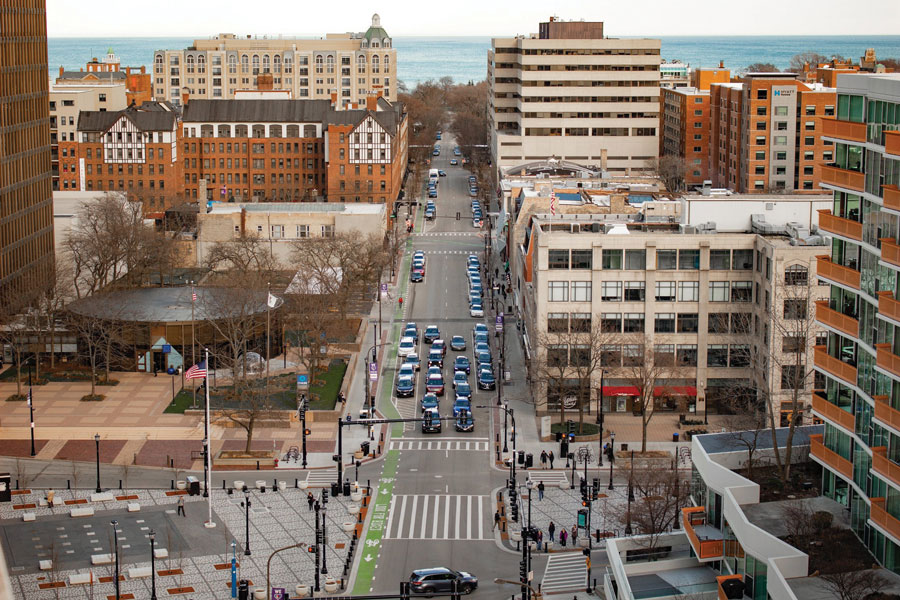How the Evanston Complete Count Committee is preparing for the 2020 Census
Daily file photo by Evan Robinson-Johnson
A view of Evanston from above. Evanston has formed the Complete Count Committee to help make sure as many residents as possible can be counted in the 2020 Census.
January 30, 2020
Evanston has formed a Complete Count Committee to ensure that as many of its residents as possible are counted in the 2020 Census, beginning on April 1.
The committee’s primary job is to analyze areas in Evanston that are expected to have lower response rates, which has historically been among undocumented immigrants and low-income households.
The Constitution mandates that every resident of the United States participate in the census, which has been conducted every 10 years since 1790. The U.S. Census Bureau recently released a fact sheet that outlines the importance of the census, calling it a “civic duty.” The census results are used to reapportion members of the House of Representatives, redraw legislative districts based on population shifts and redistribute money to support community programming, among other things.
Evanston housing and grants division manager Sarah Flax said the city of Evanston has planned targeted efforts to ensure all Evanston residents are counted, including making city computers available to respond to the census and staffing libraries with people who can explain the importance of the census.
Flax said it’s imperative to reach out to older residents as well, because they tend to be undercounted. She said they may not know how to fill out the census given its changes from 2010 to 2020.
“In 2010, mailings were sent to every address that the Census Bureau has and people were told to fill out the paper form and send it back,” Flax said. “This year, people will receive a mailing that will ask them to go online and fill out their census.”
In July, President Donald Trump’s proposal to add a citizenship question to the census was blocked by the Supreme Court. Experts warned the question could have resulted in lower response rates by noncitizens and Latinx residents, which could largely impact redistricting.
U.S. Rep. Jan Schakowsky (D-Evanston) said her office has been preparing for door-to-door work to persuade residents to respond to the census. She said tensions have risen in her district’s growing immigrant population. Because of the Trump administration’s attitude toward undocumented residents and green-card holders, many immigrants are frightened to mark their names down as residents, she said.
“Because we are a magnet for refugees and immigrants from all over the world, we’re going to have to work harder,” Schakowsky said. “Requiring people to sign a citizenship question enhances the concern that people have that they will be discriminated against if they’re not (citizens).”
The Chicago Urban League released a study in May detailing the importance of the census and getting an accurate population count in Illinois specifically. Its findings show that Illinois’ population has decreased over the decade, and an undercount in the 2020 census could result in a loss of up to two Congressional seats.
Kareem Butler, the group’s 2020 Census Project Coordinator, said Evanston in particular could be at risk for a census undercount because of its high population of renters. He said many renters are vulnerable to be missed in the census because many renters don’t update their mailing address, live below the poverty line, or belong to a racial or ethnic minority that is historically undercounted.
“It’s really important to know the community and its demographics to understand where those hard-to-count populations lie,” Butler said.
Email: [email protected]
Twitter: @isabellesarraf


